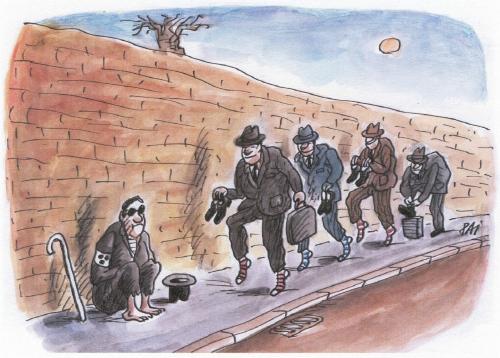I haven't blogged in a while, and I kinda miss it. So instead of jumping back into things with a treatise on the demise of denominational structure in America, or why Millennials are more generous and charitable than GenXers or Boomers...allow me to share a completely arbitrary list.
The Top Ten Basketball Players of My Lifetime.
Why?
- I'm a huge basketball fan. Huge. Probably in an unhealthy way. It's the greatest game ever invented.
- The NBA Lockout is making me grumpy.
- I just got NBA TV a couple of weeks ago...and I'm loving it.
- Monday was the 20-year anniversary of Magic Johnson's announcement that he had contracted the HIV virus. It's the most poignant basketball-related moment of my life. I still remember where I was when I heard the press conference.
- My son just started his first basketball league this week. I'm probably a little too excited to watch his games and coach him up in the driveway.
Here's the criteria / disclaimers for my top-ten list:
- the years in consideration are 1979-present
- stats are important, but not the only factor
- championships don't matter (Robert Horry has 8, Charles Barkley has 0...but nobody is arguing that Horry is a better player than Barkley)
- college career isn't a factor; only their professional years
- I'm unapologetically biased toward a certain style of player (great passing, team-oriented, fundamentally sound, highly competitive)
- I'll probably change my mind within 30 minutes of posting
Honorable Mention (in no particular order):
Kareem Abdul-Jabbar - greatest scoring center ever and one of the best players of all time. However, during my lifetime (1979-1988) he was slightly better than average, but not force to be reckoned with.
Shaquille O'Neal - physically intimidating, a guy you had to game plan for, but tremendously flawed. He can't shoot. When opposing teams intentionally put you on the free throw line late in the game, you can't be on the Top 10 list.
John Stockton / Karl Malone - I can't separate the two. Neither player would be 1/2 as good without the other. No duo ran the pick-and-roll better. However, I always thought Stockton played dirty and Malone's carpetbagging with the Lakers made me respect him less.
David Robinson - hated leaving him off the list. The Admiral was my favorite player growing up, and one of the greatest
people ever. That said, after
he got owned in the 1995 playoffs, it was clear that he's not a top-tier player.
Scottie Pippen - most difficult player to rate. I tend to think Jordan made him look 50% better than he really was. Pippen had a chance to be The Man after Jordan's first retirement, but his numbers didn't increase and he became a petulant teammate. Spent his last 6 seasons as a journeyman. Can't put him on the list.
LeBron James - might be the best ever when it's all said and done, but at this point, he hasn't been able to put it all together. He's an unbelievable physical specimen. Shrinks when his team needs him the most. Hasn't lived up to the hype...yet.
The Top Ten:
10. Steve Nash - a quicker, smarter, better shooting version of John Stockton. Nash made basketball fun to watch again, after the hand-checking, body-blocking era of the late-80s and early-90s (Pistons, Knicks, Heat, etc.)
9. Charles Barkley - the 2nd shortest guy on the list (nobody remembers he's only 6'4") but managed to lead the league in offensive rebounds for three consecutive years. Tenacious competitor. Few people played harder - and with greater success - than Sir Charles.
8. Dirk Nowitzki - no 7-footer should shoot the ball this well. Seems to have improved his passing, footwork, and defense every year. I love watching him play.
7. Kevin Garnett - nasty...angry...relentless. Spent his best years suffering in Minnesota with a bunch of stiffs around him. By the time he had a chance to play with great teammates, his knees were gone.
6. Tim Duncan - best power forward of all time. The Big Fundamental wasn't demonstrative. He just dominated. Stud on defense. Great passer. Probably my favorite player.
5. Kobe Bryant - killer instinct, especially with the game on the line. Best pure scorer of my lifetime. Would be higher, but he's a terrible teammate and sub-par passer. I really dislike him, but I can't argue with his ability.
4. Hakeem Olajuwon - best center in my lifetime. He routinely made excellent defensive players (Patrick Ewing, Robinson, Shaq, Abdul-Jabbar) look downright foolish. Controlled the paint on both sides of the court. Nobody passed out of a double-team better than Hakeem.
2b. Larry Bird - there was no shot or pass that was out of the realm of possibility for Larry. Probably the 2nd most creative, cocky, and clutch player on the list. I would have loved to see what would have happened if (a) his back didn't turn to jelly by the time he was 30 and (b) if Len Bias and Reggie Lewis had lived longer. I wonder how his game would have evolved if he would have had 8-10 more seasons.
2a. Magic Johnson - 5 championships and 3 MVPs in 12 seasons. Played all 5 positions as a rookie in the 1980 Finals. Brought down the house at the 1992 All Star game. Tallest point guard and best passer ever. (Oh, and he single-handedly changed the way the world views people with HIV/AIDS...no biggie.)
1. Michael Jordan - anyone who didn't respect MJ did so at their own peril. SportsCentury's
greatest athlete of all time.
What do you think? Where did I get it wrong? Who are some of your favorite basketball players?


















